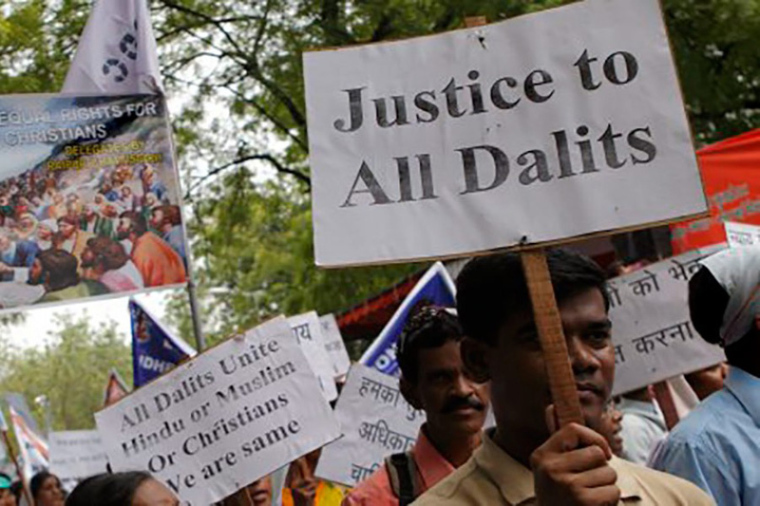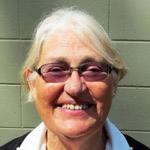
The caste system in India is an ancient way of structuring society. In 1950, Independent India's constitution banned discrimination based on caste, and, to correct historical injustices and provide a level playing field to the traditionally disadvantaged, the authorities announced quotas in government jobs and educational institutions for scheduled castes and tribes, the lowest in the caste hierarchy.
To simplify an incredibly complex caste system, there are four tiers: At the very top are Brahmins or priests and teachers. The next tier is Kshatriyas, who are the descendants of warriors and rulers or kings. Then come Vaishyas, who are farmers, traders and merchants. In the last tier are Shudras, or labourers.
And below even that are the Dalits, who are now meant to be known as Scheduled Castes or Tribes.
The term Dalit means ‘ground down’, or ‘broken to pieces’ in both the Marathi and Hindi language, people who were continually suppressed and downtrodden. They were commonly known as “untouchables”, in occupations such as latrine cleaners, street sweepers, rock breakers in quarries etc, - the jobs no one else wanted.
But government edicts to end discrimination can only go a little way to change centuries of ingrained attitudes.
Though the Indian Constitution abolished untouchability, the oppressed status of Dalits remains a reality. Mahadalit is a term which was coined in 2007 by the government of Bihar (a northern state of India) for the poorest social groups within the Dalits – a superlative degree of Dalit, coined for political gain.
Revival in Bihar state
Kewla Devi, a Mahadalit village woman, has a chronically ill son who was not responding to medical treatment. When someone urged Kewla to seek the help of Christians in an adjoining village, Kewla - with nothing to lose - did! The Christians prayed and her son recovered. So remarkable was this miraculous healing that, not only did Kewla and her whole family become followers of Jesus, but so too did around 135 Mahadalit families in Belwadih village.
However, Indian mainstream media reported the story as a case of exploitation of superstitious villagers. As reported in OpIndia.com (17 July): 'Even as states across the country are formulating and implementing laws to curb the menace of religious conversions, a raft of people belonging to the Mahadalit community have abandoned their faith and converted to Christianity ….... Reports claim the rampant conversions are being carried out under the pretext of curing maladies.'
But, reading further, one can only conclude that the Spirit of God is moving in that place.
Increased persecution
The media attention on conversions will doubtless make things worse for Christians. For example, on 27 July two men confronted Pastor Dhiraj and his wife, Ravita, at their church in Fatehpur township, Gaya District, Bihar State. According to International Christian Concern (3 August), 'The men demanded Pastor Dhiraj and his wife leave the area or they would kill him and demolish his church.'
The men returned twice, then on the evening of 29 July, a mob of up to 30 Hindu nationalists descended on the pastor's home and attempted to break in. Fortunately, local villagers heard their cries, came to the rescue, and dispelled the mob. Pastor Dhiraj and other church leaders have since met with village leaders and filed a complaint with the police.
In another incident, Nitish Kumar (14) was walking home when three unidentified men on a motorbike threw flammable liquid on him and set him on fire.
Morning Star News (MSN) reports (13 September) that Nitish's family has faced opposition from Hindu extremists since they left Hinduism for Christianity two years ago. His mother was delivered from tormenting spirits and health was restored to family members following healing prayer by Christians.
Suffering burns to 65 percent of his body, with 15 percent deep burns, Nitish is currently fighting for his life. Dr KN Tiwari of the burns unit of Appolo Burn Hospital in Patna, Bihar State, described Nitish's condition as 'very, very critical. His survival chances are low'. After expressing wonder that Nitish was still alive, the doctor touched on the source of our hope saying, 'It is only God's grace that Nitish has pulled through thus far with this extent of burns.'
Pray for India
Pray for the Kumar family and Pastor Dhiraj’s family and church, for God to protect and bless the new Christian community in Gaya District; may the Holy Spirit continue his work in the believers so they might confound their enemies by continuing to grow in grace, truth, love and unity; may all efforts to destroy this community be thwarted, may media reports intended to demean and vilify Christians and Christianity achieve the exact opposite.
Let us not forget Afghanistan
Afghanistan’s Christians are turning off phones and going into hiding. The Taliban is finding and executing Christians in Afghanistan with stunning speed. They are setting traps to flush out Christians from hiding. The Taliban are tracking them, stalking them, warning them they know where they are.
The Afghan Church and GCM Global Catalytic Ministries (GCM) believe that the best days are before us, and we will witness the greatest movement of salvation among Muslims from the ashes of this catastrophe.
Please pray for the Afghan Church to have strength and endurance. They continue to lead Bible studies, prayer meetings, and are proactively evangelizing during the very events you are seeing in the news. Pray for them to be hidden supernaturally by the hand of the Lord just like in John chapter 8, verse 59 when Jesus disappeared into the crowd.
Pray for those fleeing to the hills to be protected (Psalm chapter 91).
Pray for miraculous protection for women and children being forcibly taken and those that have already been taken for their protection, salvation, and deliverance. (2 Thessalonians chapter 3, verses 1-5)
Pray that the Afghan Church steps into her identity in Christ and walks in unity with the Holy Spirit. (Romans chapter 15, verses 5-6)

Aira Chilcott is a retired secondary school teacher with lots of science andtheology under her belt. Aira is an editor for PSI and indulges inreading, bushwalking and volunteering at a nature reserve. Aira’s husband Bill passed away in 2022 and she is left with three wonderful adult sons and one grandson.
Aira Chilcott's previous articles may be viewed at http://www.pressserviceinternational.org/aira-chilcott.html